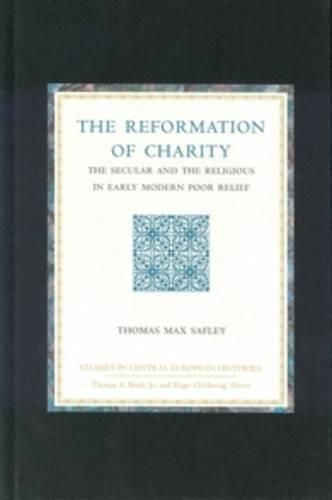Readings Newsletter
Become a Readings Member to make your shopping experience even easier.
Sign in or sign up for free!
You’re not far away from qualifying for FREE standard shipping within Australia
You’ve qualified for FREE standard shipping within Australia
The cart is loading…






Early modern Europe witnessed changes in the social, political, and ecclesiastical structures supporting poor relief, but notions that sharp fault lines divide rationalized, secular poor relief from morally and spiritually motivated ecclesiastical charity need rethinking. Spiritual ideals shaped political and social poor relief structures just as much as rationalization and effective administration colored ecclesiastical charity efforts. Poor relief reflects a local community. A community’s unique history, culture, political agenda, social mores, and religious ideals converge to shape how it responds to poverty, whatever the context: religious, political, or private (the elite). Sweeping statements and broad generalizations must be placed under the lamp of local circumstances. Theory and practice must unite. These studies take seriously the richness and humanity of early modern poor relief, the danger and desperation of poverty in a community, as well as the calculation and generosity of local charity.
Contributors include: David d'Andrea, Susan E. Dinan, Nicholas Eckstein, S. Amanda Eurich, Timothy G. Fehler, Peer Friess, Philip L. Kintner, Charles H. Parker, Thomas Max Safley, Joke Spaans, Mary S. Sprunger, snd Lee Palmer Wandel.
$9.00 standard shipping within Australia
FREE standard shipping within Australia for orders over $100.00
Express & International shipping calculated at checkout
Early modern Europe witnessed changes in the social, political, and ecclesiastical structures supporting poor relief, but notions that sharp fault lines divide rationalized, secular poor relief from morally and spiritually motivated ecclesiastical charity need rethinking. Spiritual ideals shaped political and social poor relief structures just as much as rationalization and effective administration colored ecclesiastical charity efforts. Poor relief reflects a local community. A community’s unique history, culture, political agenda, social mores, and religious ideals converge to shape how it responds to poverty, whatever the context: religious, political, or private (the elite). Sweeping statements and broad generalizations must be placed under the lamp of local circumstances. Theory and practice must unite. These studies take seriously the richness and humanity of early modern poor relief, the danger and desperation of poverty in a community, as well as the calculation and generosity of local charity.
Contributors include: David d'Andrea, Susan E. Dinan, Nicholas Eckstein, S. Amanda Eurich, Timothy G. Fehler, Peer Friess, Philip L. Kintner, Charles H. Parker, Thomas Max Safley, Joke Spaans, Mary S. Sprunger, snd Lee Palmer Wandel.